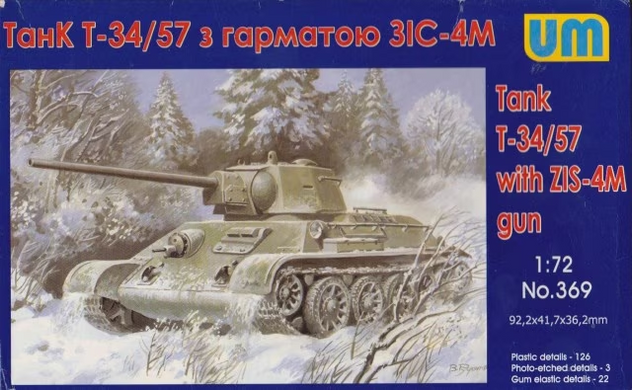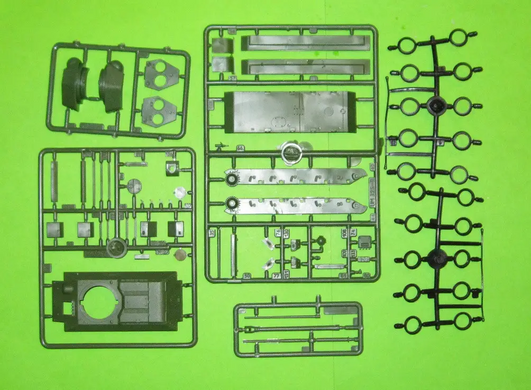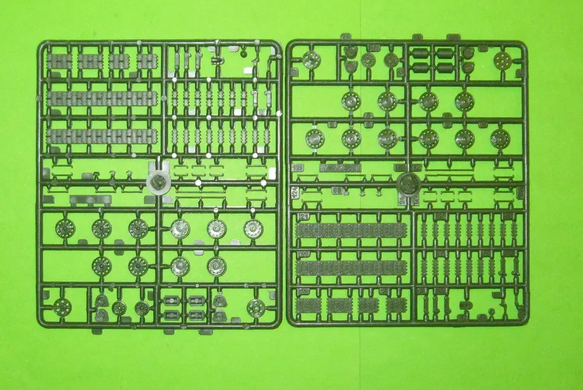The T-34 is a Soviet medium tank of the Second World War and the post-war period. The first prototypes were built in 1937-1940, and serial production in the USSR was carried out in 1940-1957. In its course, about 84,000 machines of this type were built, which makes the T-34 one of the most produced tanks in history! The drive was provided by one V-2-34 engine with a capacity of 500 hp. The length of the car - in the T34 / 76 version - was 6.68 m, with a width of 3 meters. Armament consisted of a 76.2-mm F-34 gun and two 7.62-mm DT machine guns. The main armament in the T-34/85 version was the ZIS-S-53 85-mm gun. The T-34 is undoubtedly one of the most famous tanks in the history of both World War II and the military in general, representing a kind of symbol of the Soviet victory in the war against the Third Reich. The machine was developed for the needs of the Red Army as a successor to the so-called pursuit tanks of the BT series (BT-5 and BT-7), as well as the T-26 tank. Work on the car began in 1937 in a special design bureau at the steam locomotive plant in Kharkiv. At first, the works were managed by Eng. Adolf Dick (he also made the first sketches of the new car), and after his arrest by the Soviet security authorities, Mykhailo Koshkin managed the work. Initially, the machine had the designation A-20. However, a second prototype (A-32) was quickly built with the main armament in the form of a 76.2-mm gun and much thicker frontal armor. It was the last prototype that was finally accepted for production. It can be assumed that at the time of adoption, the TT-34 was a very successful tank in many respects. It was characterized - as in 1940 - by very strong weapons, it had well-profiled armor based on inclined armor plates, as well as very high mobility and off-road performance. Disadvantages include very poor ergonomics of the car or poor optics used in the first serial batches. Despite these shortcomings, when the T-34 appeared on the Eastern Front, the German troops were greatly surprised by it. The high overall rating of the T-34 and its combat qualities determined its serial production and made it the main tank of the Red Army during the battles of 1942-1945. They also led to further improvements in the design, for example, in 1942, a new hexagonal turret appeared, which improved the quality of work of the crew members with the commander's turret. The engine and gearbox were also improved. However, in 1944, the T-34/85 model with a completely new three-person turret and the main armament in the form of an 85-mm gun was adopted. The T-34 tank took part in almost all major battles between the Red Army and the Wehrmacht on the Eastern Front in 1941-1945: from the Battle of Moscow, through the Battles of Stalingrad and Kursk, Operation Bagration and the capture of Berlin. After 1945, the T-34 tank was still in service, and it was also widely exported outside the USSR to countries such as Czechoslovakia, Poland, East Germany, Hungary and Syria.



















